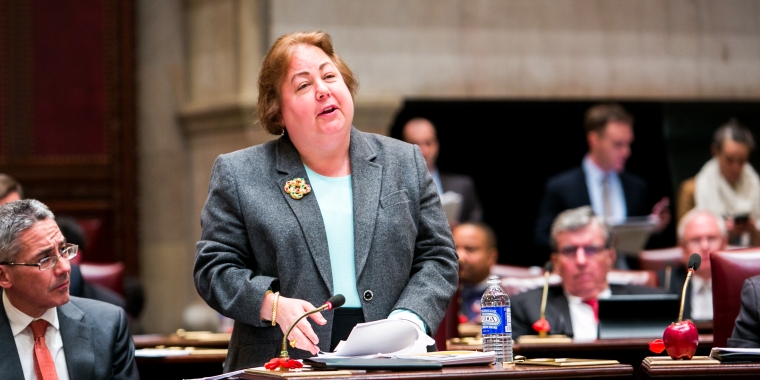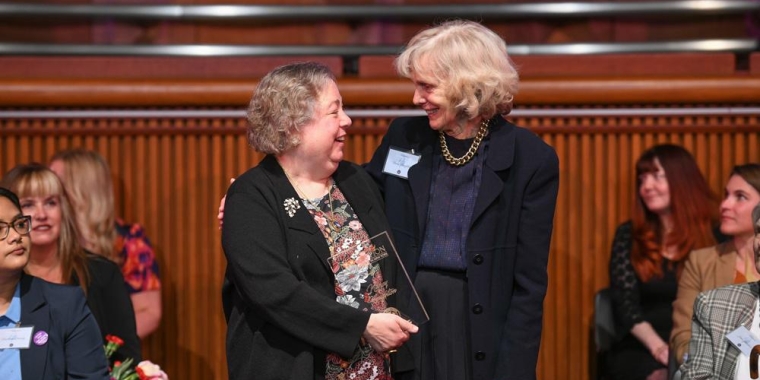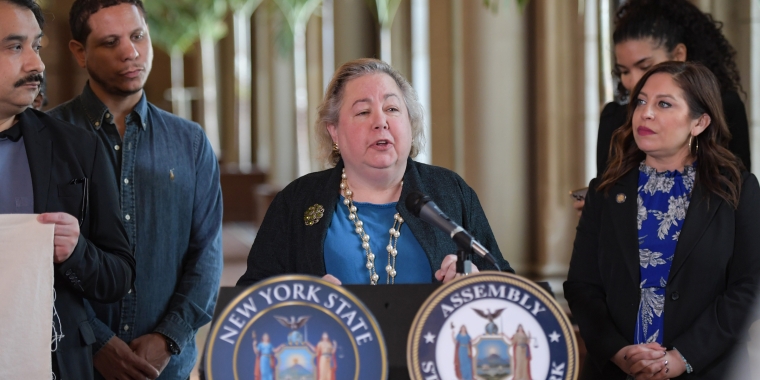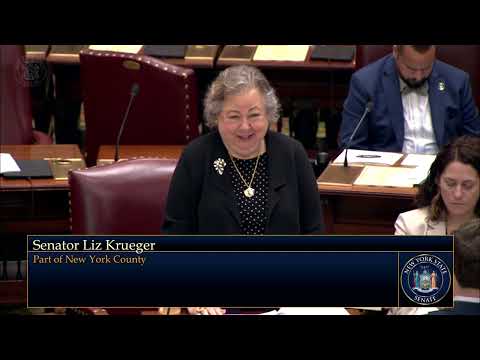
Statement From Senator Krueger On Passage Of The 2017-2018 Budget
April 12, 2017

New York – State Senator Liz Krueger released the following statement today in response to the passage of the 2017-2018 state budget:
"I am pleased that the Governor and legislature finally reached an agreement on this year’s budget after missing the deadline by more than a week. The budget itself is more of a mixed bag, and I agree with Democratic conference leader Andrea Stewart Cousins when she said “this budget may show some progress, but let’s be clear, it is not progressive.” Here are my thoughts on a few of the key issues.
"The most glaring omissions are any effort to address ethics or voting reforms. The Governor and Comptroller each proposed a number of worthy measures to reduce the potential for conflicts of interest among legislators and government officials, improve oversight of state contracting, open up our voting procedures to encourage more public participation, and reform our campaign finance laws to reduce the impact of big money on elections. None of these proposals were included in the final budget.
"On a more positive note, the final budget did include language raising the age of criminal responsibility to 18. New York now joins the other 48 states who already do this. I have concerns about some aspects of the final agreement – particularly the decision to create “youth parts” of adult criminal court for handling nonviolent felony cases. Prosecutors would still have discretion to keep cases in this court from moving to family court where all misdemeanors will be handled. And while I am pleased juveniles will no longer be held in adult jails such as Riker’s Island, delaying full implementation of this change to October of 2019 is unnecessary and will leave many juvenile offenders at risk in the interim.
"The final budget also includes a version of the Governor’s college affordability plan, which would provide full tuition grants to SUNY and CUNY students from families making up to $125,000 when fully phased in in 2019, if the students meet a number of conditions, including maintaining full-time status and graduating on time. Students attending private colleges would receive a similar amount of tuition assistance.
"Unfortunately, the college tuition plan is also a case of the glass half-full or half-empty, depending on one’s perspective. I would have preferred additional resources be provided to public colleges to address the increased demand that this proposal will cause. I am particularly concerned that this lack of new resources will make it hard for students to meet the on-time graduation requirement, since it is already hard for CUNY students to get access to the required courses they need to graduate. I am also concerned about the provision that will convert the tuition grant to a loan if the student does not live and work in New York State for up to four years after graduating. This requirement may not be realistic in some professions, and could increase the already out-of-control problem of post-college indebtedness. Finally, I was disappointed that, unlike the Governor’s original proposal, the final budget did not include the DREAM Act, which would provide access to higher education for undocumented immigrants who came here as children.
"The final budget did provide an increase for public schools across the state, which will receive an additional $700 million in support, representing a 4.25% increase over last year. While this is only a portion of what is due to our city schools pursuant to the Campaign for Fiscal Equity lawsuit, I am pleased that the final budget preserved the basics of the foundation aid formula, which directs dollars to the neediest districts. The budget also keeps in place the charter school cap, meaning public education dollars will not be further siphoned off to support up to 100 new charter schools. The final agreement did not address mayoral control of New York City schools, setting up yet another end-of-session showdown over this issue.
"On housing policy, the budget was also a mixed bag. The very good news is that this budget finally created a process for allocating the first $2.5 billion of the Governor’s $20 billion Five Year Housing and Homeless Plan. Governor Cuomo announced the plan last year but the money was never allocated because it required an agreement between the Governor and legislative leaders that never happened. This year the budget re-appropriates the $1.97 billion from last year and adds additional funding that will be used for construction of supportive housing, senior housing, NYCHA repairs, and a variety of other programs to address critical affordable housing needs across the state.
"Unfortunately, there is also very bad news on the housing front. The budget includes a renewal of the 421-a tax abatement program. This program is presented as an affordable housing program, but has served mainly to fund luxury development at the cost of billions of dollars in lost tax revenue that could be spent directly on affordable housing. According to a study by the Association for Neighborhood and Housing Development (ANHD), 79 cents of every 421-a dollar spent goes to luxury development, and only 11 cents goes to support affordability. The new version of 421-a, which has been rebranded as The Affordable New York Housing Program does not improve the affordable housing requirements, but it does add significant cost to the taxpayer. And the budget agreement also decouples the expiration of 421-a from the expiration of rent regulation, reducing the leverage of tenant advocates in fighting to preserve rent regulation, which has proven to be the most effective affordable housing program in the state. The new 421- will expire in 2022, while the rent laws come up for renewal in 2019.
"On the environmental front there was also progress, but not as much we need to confront the severity of the many crises we face. The final budget included $2.5 billion for clean water infrastructure. Although this is a big step in the right direction, the State Comptroller recently estimated that the state may need to invest $40 billion over the next two decades to maintain our aging water infrastructure. The State Environmental Protection Fund will also retain its historically high level of funding, at $300 million. Unfortunately, despite that advocacy of many leading environmental organizations in the NY Renews coalition, the final budget did not include the Climate and Community Protection Act, which, if passed, would be the nation’s most ambitious climate legislation to date.
"In sum, this budget made progress, but it did not grasp the opportunity to give New Yorkers the progressive budget that they deserve. The Governor set out an ambitious agenda, but on some of the biggest issues, much more could have been accomplished if I and my Senate Democratic colleagues had been at the table. Instead, the Republican/Independent Democratic Conference coalition blocked the opportunity for a truly progressive budget. In the remaining months of the legislative session I will be fighting to tackle the many outstanding issues that still need to be addressed."
Share this Article or Press Release
Newsroom
Go to NewsroomSenator Krueger's May 2024 Update
May 30, 2024



